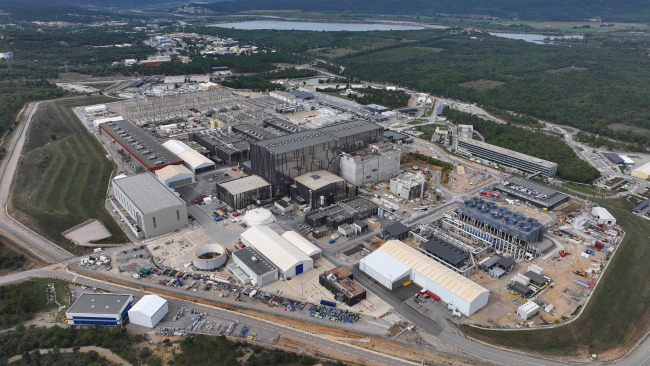In the Aftermath of the Midterm Elections, Where is Joe Biden's America headed?

Practical information
With better-than-expected results in the midterm elections, the Biden Administration should be able to pursue its agenda in the next two years. Its support for Ukraine should remain strong, even though it is being challenged in Washington. As for its industrial and technology policy, it aims both to slow China's advances and fight climate change, but also to revitalize the country's middle classes. The elections results also reinforce the stature of the President, who may be tempted to run again in 2024. On the other side of the aisle, the weakening of Donald Trump bodes for a turbulent Republican primary.
For its 21st edition, Ifri's Annual Conference on the United States offered a day of discussions on the most current topics in American politics.

CONFERENCE PROGRAM
9:30 AM - 11:00 AM
Economy Panel: The economic, commercial and technological relationship between China and the United States
- Camille Brugier, Researcher on Chinese Foreign Policy and Trade Relations, formerly China Researcher at the Strategic Research Institute of the Military Academy (IRSEM)
- Elvire Fabry, Senior Research Fellow on Geopolitics of Trade at Institut Jacques Delors
- Jeremy Ghez, Professor of Economics and International Affairs at HEC Paris, Co-Director of the HEC Paris Center for Geopolitics
- Moderator: Éric Chol, Managing Editor at L'Express
11:15 AM - 12h45 PM
Domestic Policy Panel: Joe Biden strenghtened, Donald Trump weakened. The Outlook after the elections
- Célia Belin, Non Resident Senior Fellow with the Center on the US and Europe at the Brookings Institution
- Danielle Follett, Chair of Democrats Abroad France, Associate Professor of American Literature at Université Sorbonne Nouvelle
- John Fortier, Senior Fellow at the American Enterprise Institute (AEI)
- Moderator, Gilles Paris, Editorial writer and columnist for Le Monde
14:30 PM - 16:30 PM
Foreign Affairs Panel : The impact of the Ukraine war on the foreign policy debate in Washington
- Emma Ashford, Senior Fellow with the Reimagining US Grand Strategy program at the Stimson Center
- Manuel Lafont Rapnouil, Director of the Center for Analysis, Planning and Strategy (CAPS) of the French Ministry for Europe and Foreign Affairs
- Ian Lesser, Vice President at The German Marshall Fund of the United States (GMF); Executive Director of the Brussels office of GMF
- Jacques Rupnik, Political Scientist, Research Director emeritus at the Centre de Recherches Internationales (CERI), Sciences Po
- Moderator: Laurence Nardon, Head of the North America Program at Ifri
With the support of:
Related Subjects
Other events

Paris Naval Conference 2026: Naval Rearmament and Operations in Contested Waters
This fourth edition of the Paris Naval Conference (CNP), bringing together high-level military, industrial, and academic speakers, will address the challenges associated with general naval rearmament and naval operations in increasingly contested environments.

Is Fusion Coming Faster and Cheaper than Expected?
ITER was for long time the embodiment of fusion as an international, long standing R&D cooperation objective to seek a new way to produce safe, low carbon and abundant low carbon electricity. Yet over past years, fusion start ups, several governments and investors have decided to push fusion R&D and deployment to complement ITER. Major efforts are ongoing notably in the United States, China, Germany, Italy.

EV Supply Chains for Japan and Europe: Strengthening Economic Security
Economic security aims to ensure the resilience of supply chains for key industries: the case of electric vehicle production in Japan and Europe will be discussed.









